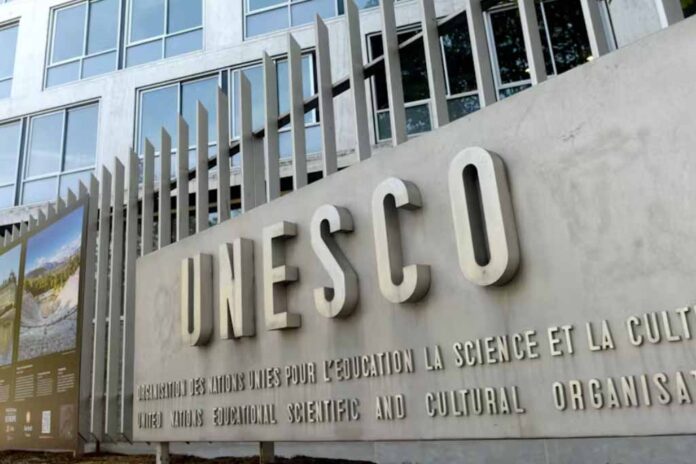The United States has announced its decision to withdraw from the United Nations Educational, Scientific and Cultural Organization (UNESCO), citing fundamental ideological differences and accusing the agency of advancing what it called “divisive” social and cultural agendas.
The withdrawal, confirmed on Tuesday, is set to take effect at the end of December 2026.
According to State Department spokeswoman Tammy Bruce, UNESCO promotes “divisive social and cultural causes” and places undue emphasis on the UN’s Sustainable Development Goals, which she described as part of a “globalist, ideological agenda” incompatible with the “America First” foreign policy.
White House Deputy Spokesperson Anna Kelly elaborated further in comments to the New York Post, accusing UNESCO of supporting “woke, divisive cultural and social causes” that she claimed were out of sync with the values supported by American voters.
This marks the second time the US is withdrawing from UNESCO under President Donald Trump, who had previously exited the agency in 2017, alongside other global agreements and bodies such as:
- The World Health Organization
- The UN Human Rights Council
- The Paris Climate Accord
- The 2015 Iran Nuclear Deal
All these exits were later reversed by President Joe Biden during his term, including rejoining UNESCO in 2023. With Trump now back in the White House, the reversal signals a renewed shift in US multilateral engagement.
UNESCO’s Response
UNESCO Director-General Audrey Azoulay expressed disappointment at the US decision but noted it came as no surprise:
“I deeply regret President Donald Trump’s decision to once again withdraw the United States of America from UNESCO. However regrettable, this announcement was expected, and UNESCO has prepared for it.”
Azoulay added that the agency would continue its work in promoting peace and international cooperation despite the setback.
Historical Context
The US has had a long and complex relationship with UNESCO:
- Joined as a founding member in 1945
- Withdrew in 1984 under President Ronald Reagan, citing financial mismanagement and anti-US bias
- Rejoined in 2003 under President George W. Bush after reforms
- Withdrew again in 2017 under President Trump
- Returned in 2023 under President Biden
Impact
The US currently contributes around 8% of UNESCO’s budget, significantly less than the 20% share it held prior to the 2017 withdrawal. Nevertheless, the departure could still impact the agency’s financial stability and symbolic global standing.
UNESCO is perhaps best known for its designation of World Heritage Sites, which include globally significant locations such as the Grand Canyon in the US and Palmyra in Syria.
The move signals yet another sharp divergence from multilateralism and international cooperation under the renewed Trump administration, with broader implications for the US’s role in global governance.
